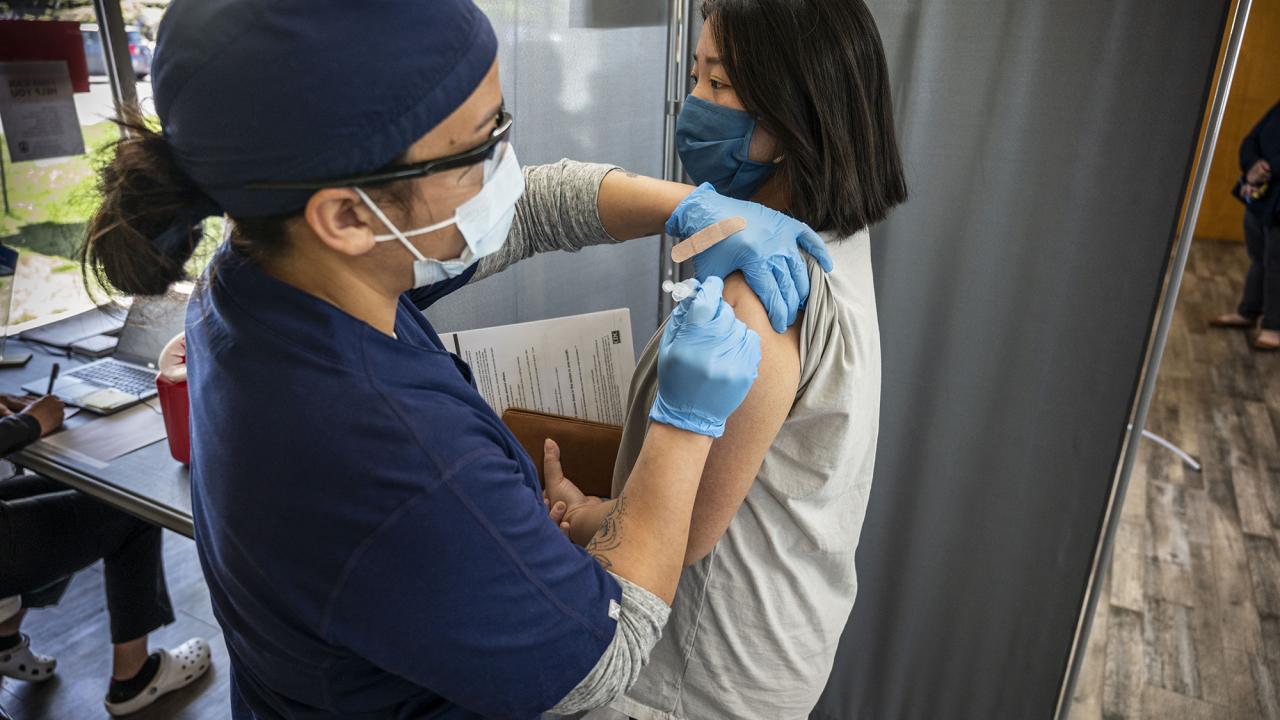
California Helps Farmers Bring COVID-19 Vaccines to the Field
Farmers and agricultural employers can protect their business and their employees by supporting workers’ access to COVID-19 vaccines. It’s now faster and easier for farmers to help their workers get vaccinated, thanks to a new partnership program sponsored by the California Department of Public Health.
By filling out this form on the state’s Employer Vaccination Toolkit, employers can request help with setting up a mobile vaccine clinic on their farm or find out how to team up with others to host vaccination events nearby.
“It’s all about making COVID-19 vaccines more accessible to workers,” said Heather Riden, program director of the Western Center for Agricultural Health and Safety at the University of California, Davis. “This is good news for farms, families and workplace safety throughout the state.”
California’s 800,000 farmworkers are especially vulnerable to COVID-19 because they often live, work and carpool in close quarters with other people, and they have stayed on the job during the pandemic to plant, process and harvest the nation’s food. Farmworker vaccination rates are lower than the national average, but not primarily because workers are not interested in getting the shot.
For many farmworkers, it’s difficult to reach vaccination sites because they may lack reliable transportation and/or be less able to leave work in the middle of the day.
“Signing up for a vaccine online is difficult for populations who lack broadband access and face language barriers,” Riden explains. “And, for many farmworkers, it’s difficult to reach vaccination sites because they may lack reliable transportation and/or be less able to leave work in the middle of the day.”
That’s why more California farmers are interested in bringing vaccines to the field. Submitting a request for a mobile vaccine clinic does not guarantee resources, but a state representative will reach out within three business days of the request to see how they can help. Farmers with fewer than 100 interested employees may be encouraged to partner with a neighbor or local group to organize a group vaccination event.
Farmers can also help workers find and book vaccination appointments near their home or work via the Employee Vaccination Toolkit or by calling the CA COVID-19 Hotline at 1-833-422-4255 anytime between 8 a.m. and 8 p.m. Free rides to a vaccine appointment can be booked via the hotline or at myturn.ca.gov.
To increase worker participation at mobile vaccination clinics, Riden encourages farmers to schedule an informational session beforehand where employees can learn more about the vaccine. You can email the Western Center for Agricultural Health and Safety at aghealth@ucdavis.edu to see if their staff can help.
“Missing work is a concern some farmworkers cite for not getting vaccinated,” Riden said. “In addition to providing information on the vaccine, employers should inform workers about available sick leave options. For example, many employees are entitled to use COVID-19 Supplemental Paid Sick Leave for a vaccine appointment or if they cannot work or telework due to vaccine-related side effects.”
For more information, visit the state Safer At Work website. If you have questions about submitting a request for vaccine support, contact the California Department of Public Health at MobileVaccineSites@cdph.ca.gov.
Media contact(s)
- Diane Nelson, UC Davis College of Agricultural and Environmental Sciences, 209-480-7445, denelson@ucdavis.edu
- Heather Riden, UC Davis Western Center for Agricultural Health and Safety, heriden@ucdavis.edu
- Sami Gallegos, COVID-19 Vaccine Task Force, California Department of Public Health, Sami.Gallegos@cdph.ca.gov
This article was created with support from the WCAHS COVID-19 Statewide Agriculture and Farmworker Education (SAFE) program funded by the California Labor and Workforce Development Agency (LWDA).
